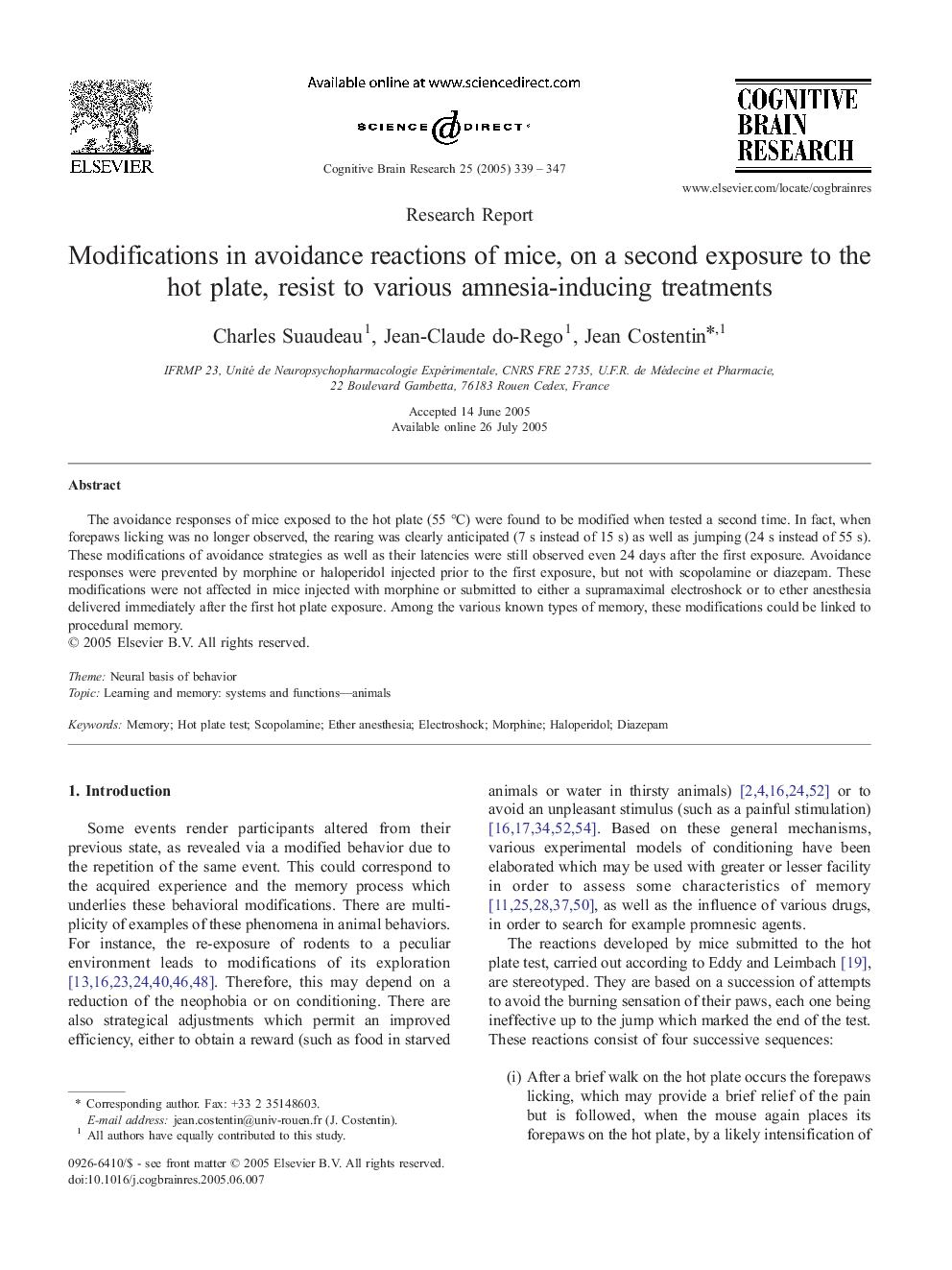| Article ID | Journal | Published Year | Pages | File Type |
|---|---|---|---|---|
| 9408080 | Cognitive Brain Research | 2005 | 9 Pages |
Abstract
The avoidance responses of mice exposed to the hot plate (55 °C) were found to be modified when tested a second time. In fact, when forepaws licking was no longer observed, the rearing was clearly anticipated (7 s instead of 15 s) as well as jumping (24 s instead of 55 s). These modifications of avoidance strategies as well as their latencies were still observed even 24 days after the first exposure. Avoidance responses were prevented by morphine or haloperidol injected prior to the first exposure, but not with scopolamine or diazepam. These modifications were not affected in mice injected with morphine or submitted to either a supramaximal electroshock or to ether anesthesia delivered immediately after the first hot plate exposure. Among the various known types of memory, these modifications could be linked to procedural memory.
Keywords
Related Topics
Life Sciences
Neuroscience
Behavioral Neuroscience
Authors
Charles Suaudeau, Jean-Claude do-Rego, Jean Costentin,
